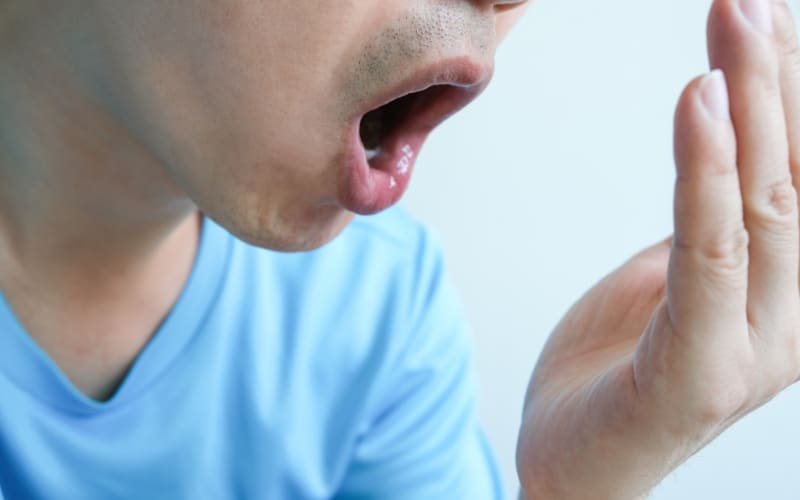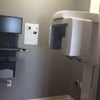
Bad breath, or halitosis, can be a frustrating issue that impacts your self-confidence and social interactions. If you’re grappling with persistent bad breath and wondering how to get rid of bad breath permanently, you’re not alone. From personal experience and professional advice, I’ve found that tackling bad breath requires a multifaceted approach.
In this blog, we will explore various ways to address bad breath, providing practical tips and insights that have proven effective for many. Whether you’re looking to improve your oral hygiene routine or address underlying health issues, this blog will offer actionable steps to help you achieve and maintain fresh breath.
Understanding the Causes of Bad Breath
To effectively combat bad breath, it’s essential to identify its root causes. Here’s a breakdown of common factors contributing to halitosis:
1. Poor Oral Hygiene
Inadequate brushing and flossing can lead to the buildup of plaque and food particles, fostering bacteria that cause bad breath.
- Impact: Plaque and food debris provide a breeding ground for bacteria, resulting in unpleasant odors.
- Solution: Brush your teeth twice daily with fluoride toothpaste, floss regularly to remove trapped particles, and use an antibacterial mouthwash to reduce bacteria.
2. Food Choices
Certain foods, like garlic and onions, can cause bad breath due to their strong odors. Additionally, sugary foods can contribute to bacteria growth.
- Impact: Foods with intense flavors can linger in your mouth, affecting your breath long after consumption.
- Solution: Opt for a balanced diet rich in fresh fruits and vegetables. Drinking water and chewing sugar-free gum can also help neutralize odors.
3. Dry Mouth
Saliva plays a crucial role in keeping your mouth clean by washing away food particles and bacteria. A dry mouth can exacerbate bad breath.
- Impact: Reduced saliva flow allows bacteria to thrive, leading to persistent bad breath.
- Solution: Stay hydrated by drinking plenty of water, use saliva substitutes if necessary, and avoid substances like alcohol and tobacco that can dry out your mouth.
4. Gum Disease
Gum disease, or periodontal disease, involves inflammation and infection of the gums, which can contribute to bad breath.
- Impact: Infection and inflammation in the gums can produce a foul odor.
- Solution: Regular dental check-ups and professional cleanings are essential. Maintain good oral hygiene with daily brushing and flossing to prevent and manage gum disease.
5. Medical Conditions
Certain medical conditions, such as diabetes, respiratory infections, and gastrointestinal disorders, can cause specific types of bad breath.
- Impact: These conditions can lead to unique breath odors depending on the underlying issue.
- Solution: Consult with a healthcare provider to diagnose and treat any medical conditions contributing to your bad breath.
Effective Strategies for Permanent Fresh Breath
Implementing a comprehensive approach to oral care and lifestyle can help you achieve lasting fresh breath. Here are some proven strategies:
1. Enhance Your Oral Hygiene Routine
Good oral hygiene is the cornerstone of fresh breath. Consider the following:
- Brush Regularly: Use fluoride toothpaste and a soft-bristled toothbrush. Brush for at least two minutes twice a day.
- Floss Daily: Flossing removes food particles and plaque from between your teeth and under the gumline.
- Clean Your Tongue: Bacteria and food particles can accumulate on your tongue. Use a tongue scraper or brush your tongue to keep it clean.
- Use Mouthwash: An antibacterial mouthwash can help kill bacteria and freshen your breath.
2. Stay Hydrated
Proper hydration supports oral health and helps prevent bad breath.
- Stimulates Saliva Production: Drinking water helps keep your mouth moist and encourages saliva flow, which is essential for cleaning your mouth.
- Flushes Out Food Particles: Regular water intake helps wash away food particles and bacteria, reducing the chances of bad breath.
3. Adopt a Breath-Friendly Diet
Your diet significantly impacts your breath. Here’s how to make healthier choices:
- Avoid Strong Odors: Limit intake of foods with strong smells, like garlic and onions.
- Eat Fresh Fruits and Vegetables: These foods can help reduce bad breath by stimulating saliva production.
- Chew Sugar-Free Gum: Gum can help freshen your breath and promote saliva flow.
4. Quit Smoking and Avoid Tobacco Products
Tobacco use is a major contributor to bad breath and can also damage your gums and teeth.
- Impact: Tobacco causes an unpleasant odor and reduces saliva production.
- Solution: Seek resources and support to quit smoking and avoid tobacco products to improve your breath and oral health.
5. Schedule Regular Dental Check-Ups
Routine visits to dental practice are crucial for maintaining oral health and preventing bad breath.
- Professional Cleanings: Regular cleanings help remove plaque and tartar that brushing and flossing may miss.
- Early Detection: Dentists can identify and address underlying issues that might be causing bad breath.
6. Address Any Underlying Health Issues
Persistent bad breath despite good oral hygiene may indicate an underlying health condition.
- Consult a Healthcare Provider: If you suspect a medical issue, seek a diagnosis and appropriate treatment from a healthcare professional.
Achieving and maintaining fresh breath is within your reach with the right approach. By enhancing your oral hygiene routine, staying hydrated, making healthier food choices, and addressing any underlying health issues, you can effectively manage and eliminate bad breath.






